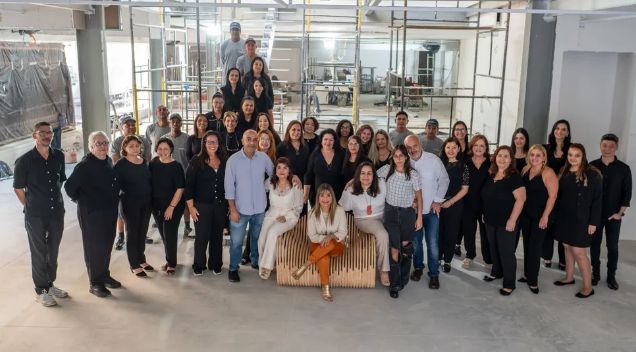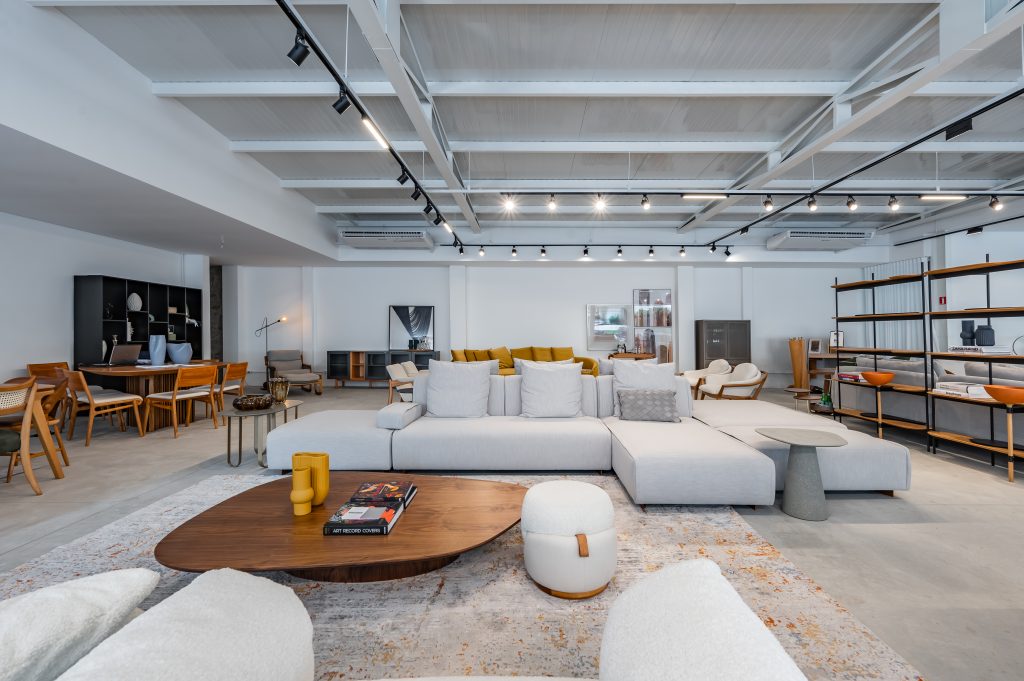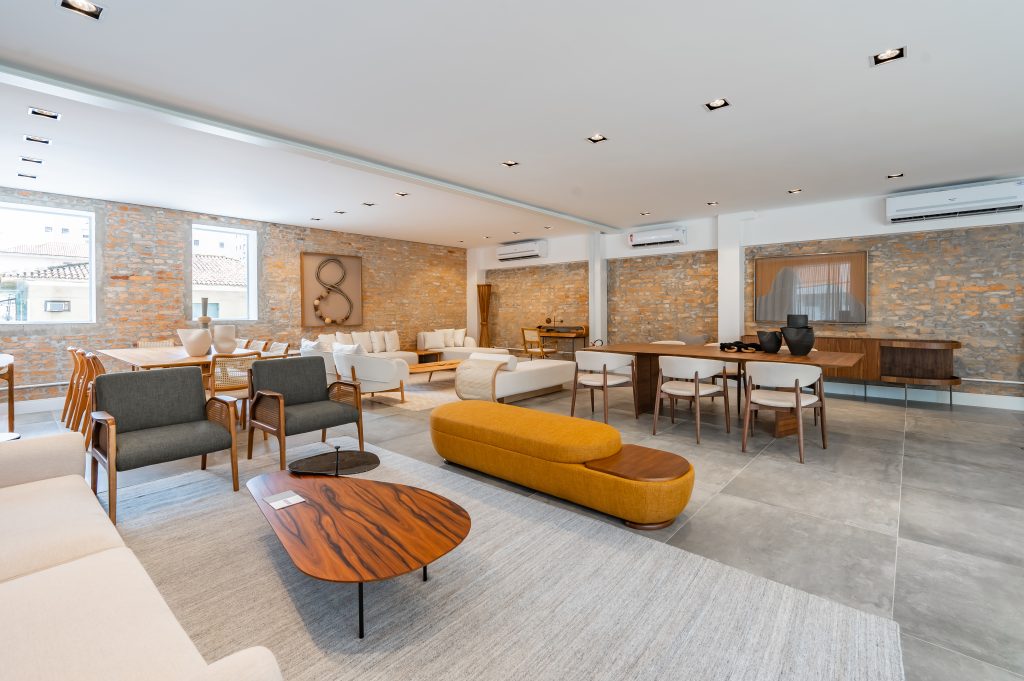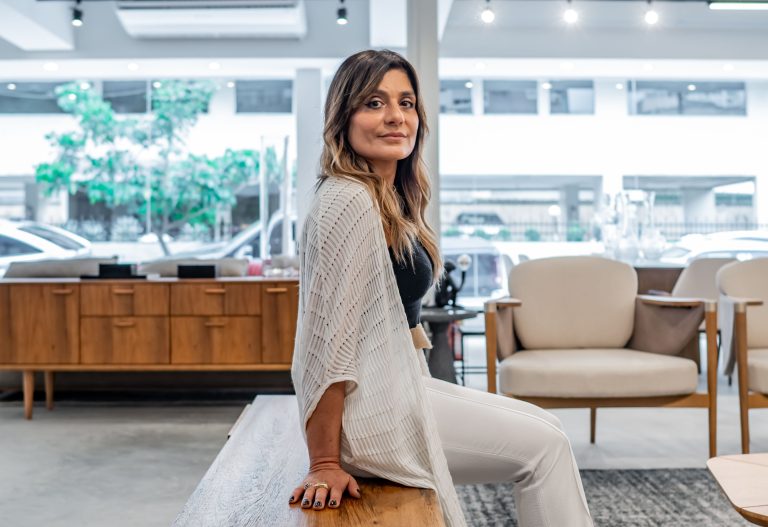São Paulo – A few years after siblings Lola, Wafaa, Rajaa, Ibrahim, Raouda and Omar arrived in Brazil from Lebanon with their parents, Zahra Mohamad Assaf and Mohamad Abdul Latif Assaf, furniture became part of their daily lives. Lola, the youngest, arrived as an infant in the late ’70s and grew up alongside the family business they started in Santos: the Alhambra furniture store.
The other siblings also grew within the world of furniture retail. Each of the six participated in the business according to their talents and opportunities, witnessing the company founded by their father grow into two, three, and eventually four stores. Now, Alhambra is a leading name in luxury furniture retail in Santos and is preparing to open its fifth location in the city.

In an interview with ANBA, Lola Assaf shared the story of her Lebanese family’s business and immigration journey. Her parents, Mohamad and Zahra, from the Bekaa Valley, moved to Brazil due to the civil war in their home country. They chose Santos as their new home because Zahra’s parents already lived there. The six children were all already born by then and came to Brazil with the couple.
In Lebanon, Mohamad had worked in the public sector. In Brazil, his first venture was with supermarkets, a field in which relatives were already involved. However, the patriarch soon left that area and opened a furniture store on Avenida Senador Feijó, which remains one of the company’s current locations. Part of the store featured a showroom with displayed furniture, while the other part handled furniture polishing.
Brazilian design
Lola explains that from the beginning, Alhambra focused on high-quality furniture, but the business gradually shifted towards celebrating Brazilian design. “The DNA of Alhambra is to honor our roots and the Brazil that so warmly welcomed us. We have the utmost respect for Brazil and Brazilian roots. Local designers are incredibly creative, and the furniture is of the highest quality,” she says, noting that despite the high standards, offering good prices remains a key focus for the network.

Alhambra stores, which carry multiple brands, sell individual pieces of furniture for both residential and corporate environments. There is no in-house manufacturing; instead, the company works in partnership with industry manufacturers, allowing them to customize pieces for clients by adjusting dimensions, colors and fabrics of sofas, for example. According to Lola, after-sales service is an area of excellence in the company.
“There was a whole curation process to ensure we only partnered with the best brands in the market, those who meet our standards for excellence, high-quality products, and respect for the consumer. This is how we selected the brands to feature in Alhambra’s showroom,” she says about the journey.

Lola notes that while some clients visit the store on their own, most come accompanied or rely on the services of an architect or interior designer to make their choices. The store offers a range of items from sofas to chairs, tables, sideboards, and more, but there isn’t a single type of product that stands out in sales or popularity. “It’s the mix, the entire project,” she says, referring to the furniture compositions for entire homes—excluding anything that needs to be custom-designed—or for individual rooms, like the living room or bedroom.
The Assaf siblings
Now, in addition to Lola, who is involved in the business, Rajaa handles curation and commercial aspects, while Wafa manages the finance department. The other siblings participate as partners, occasionally overseeing specific projects and having been part of the team in the past. According to Lola, even though not everyone is involved in the day-to-day operations, there is always an exchange of ideas about the business. “Our partnership works very well,” she says.
Their parents, Mohamad and Zahra, have passed away, he in 2013 and she three years ago. Lola notes that her father managed the business very well. “Now, we carry on his legacy,” she says. Although her mother did not work in the store, she was crucial to the business, according to Lola. “She was the mastermind at home,” Lola explains, highlighting the encouragement and savings provided by her mother, which were instrumental in starting the company.
The youngest sibling says that their mother encouraged her children to study and grow. “She was an extraordinary woman. She was and still is, wherever she is now, incredible, and she was super important at every stage of our business,” she says. The encouragement had an impact. Lola graduated in Advertising and Marketing, Rajaa and Omar in Business Administration, Raouda in Architecture, Ibrahim in Computer Engineering, and Wafa in Electrical Engineering.
Lebanon
The ties with Lebanon have not been severed. Lola has visited the country twice and admires it for its modernity, cosmopolitan nature, warmth, and beautiful sights. The family owns a home in the Arab country and travels there whenever possible. Reflecting on values inherited from their parents, such as character, respect, honesty, and humility, Lola believes that the Assaf siblings have primarily inherited familial unity from Arab culture. “Arab culture is very family-oriented, and that has been the foundation of everything,” she says.
Read more:
Lebanese family business changes towards sustainability
Translated by Guilherme Miranda




